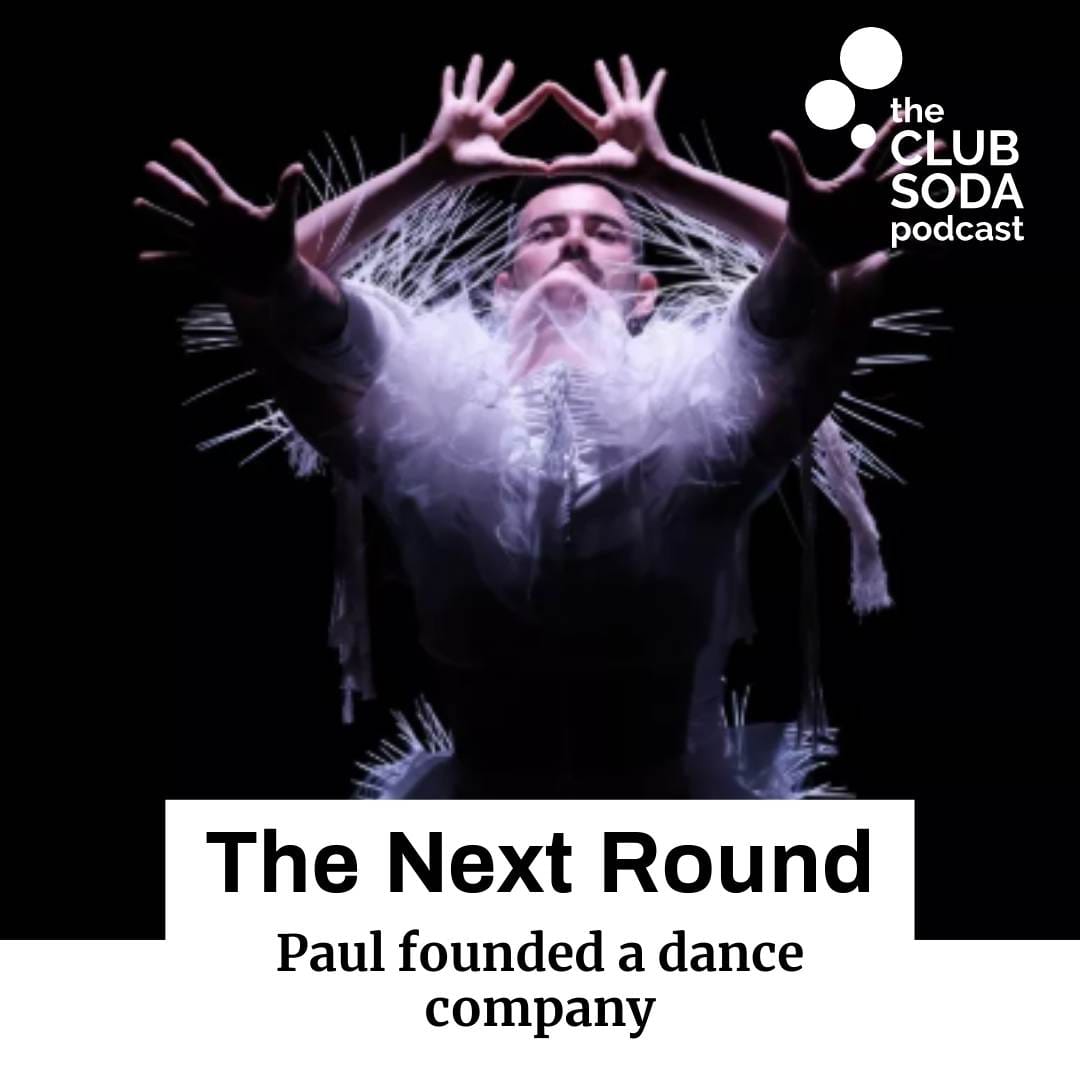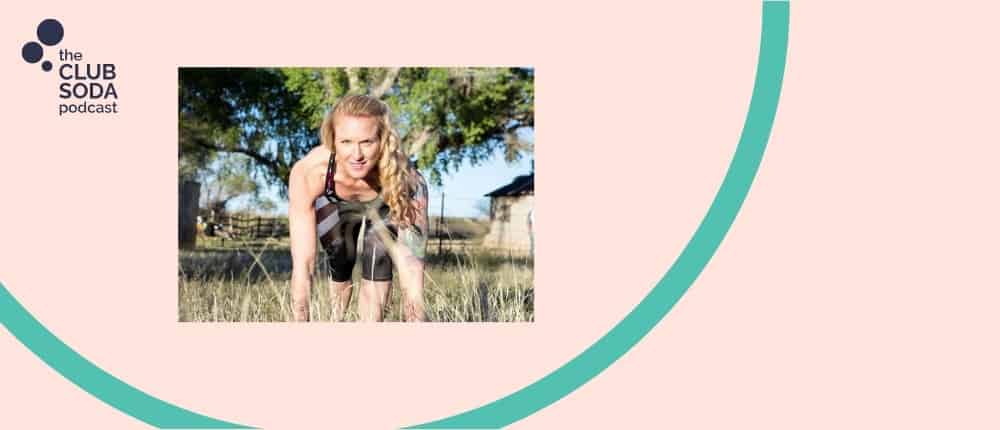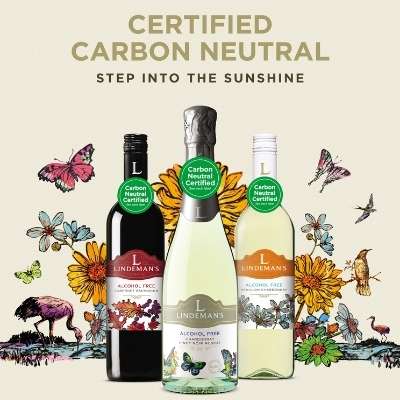
This website uses cookies to improve your experience. We'll assume you're ok with this, but you can opt-out if you wish. Read More
The Next Round: What happens after you change your drinking?

Military personnel work in tough environments, and we hear from lots of folks who find the drinking culture challenging. It’s easy to fall into that work-hard-play-hard mentality, especially when you have enforced dry spells during active service. Binge drinking can seem harmless, particularly when you’re physically very fit. In this week’s podcast, we are joined by Jenn, who lifts the veil on military drinking culture in the States. This podcast episode is sponsored by the wonderful folk over at Lindeman’s Wine.

We’ve partnered with Lindeman’s wine for our April podcasts – their winemakers use the spinning cone method to gently remove alcohol while retaining the great Lindeman’s taste. They are also proud to announce they are now certified Carbon Neutral. Available in Asda, Morrisons and Tesco throughout the UK.
Jenn is a fitness and nutrition coach, a Chief Warrant Officer Two in the US Army, a champion collegiate rower, a bodybuilding competitor and a mom and wife….but that’s not the impressive part. The impressive part is that she perseveres through life’s curveballs, she keeps going despite the challenges and she never gives up. Through decades of trial and error, she’s learned how to integrate practical fitness and nutrition habits into the craziest stages of life. She’s run 5K’s with fellow soldiers during combat tours, completed a marathon after her first baby, and entered a bodybuilding competition after the loss of her father. She also made the difficult decision to become and stay sober. She’s part of the Army’s Master Fitness Trainer program, which helps soldiers prepare for physical fitness tests. Through her business SoberFIT, Jenn is taking years of training, knowledge and straight-up hard-learned life lessons and delivering them to you in an easy, maintainable plan.
My story starts in college, I was a athlete on the crew team. The drinking culture really started there. The mentality was work hard party hard. We would practice and race, then we would go out and party. That was the cycle throughout my college career. We had a 72 hour rule, we would abstain from drinking while we were getting ready for a race. Then the second we crossed the finish line and our job was done, the attitude changed. We either celebrated our win or we drowned our sorrows in loss. It became so normalised. I didn’t ever see a problem with it, because we worked as hard as we partied. Often we were celebrating, we were even invited to the Royal Henley Regatta for our record in the States. I just got swept up in it and never really thought about it.
When I graduated university, I joined the military which also fit very well into my narrative of work hard party hard. The military has an unspoken drinking culture. We use it pretty significantly as a coping mechanism. Our operation tempo is very busy, we do what we need to do, and when the time comes to take the uniform off, drinking is a pastime and a hobby. I’ve been in the military over 14 years, both on and off active duty, and that has always been the culture.
I had my first child on active duty and got off to raise kids. But I still had that mentality of work hard party hard. I really subscribe to mommy wine culture. I fell into the parent hard party hard. And I would surround myself with other other moms who who did the same thing. I struggled with my alcohol consumption for the last 10 years. This there’s this term that I didn’t hear until I got sober, which was ‘grey area drinking’, I wouldn’t drink every day. But the times that I did drink were not not healthy. It really wasn’t serving me. I always over consumed. There was never a huge moment for me. But in the last 10 years, every time I drank questioned my relationship with alcohol. I think I was in denial, I attached a lot of my identity to being this fun drinking party person.
I am certified as a personal trainer. I see value in exercise, I know the science behind it. I’m educated in designing training plans. So it all looks great externally. But I found I was giving people advice and expertise in this field, then I’d drink. I realised there was such a dissonance in my life. exactly. I struggled with that for 10 years, because I was so entrenched in the idea that I had to drink to have good time. I didn’t know who I would be or what I would do if I didn’t.
In the military there is an accepted drinking culture. It is used as a coping mechanism. We are held to a standard for substances but alcohol is not one of those. It’s a double edged sword because we’re expected to partake. It’s never directly put out there, but it’s definitely an unspoken culture. Then we are expected to be at work at early very early hours, we are tested on physical fitness. There’s this sort of expectation to use alcohol the way everyone else does, but not to let it affect you or ruin your life. Because then you’re weak.
Not drinking doesn’t mean that you’re weak, or that you have to be ostracised or made fun of. But breaking that stigma and changing the culture has to start with leadership. You’re never going to walk into an area of the military where they say ‘you’re not allowed to get help’. But the culture dictates how people handle their stressors, their issues, their challenges. If there’s a toxic culture that says ‘if you ask for help, you’re on your way out’, it’s not easy to ask for that help.
It depends on the leadership culture of your unit. Not many people have the confidence to say anything, and even if they do, it may not help. It does affect a lot of a lot of service members and they hang on to it, then they retire. There’s a reason why 22 veterans take their lives every day in the states. I’m not saying that they all have issues with alcohol abuse and misuse. But studies show that a lot of us turn to alcohol because we get tested for other substances, but we don’t get tested for alcohol. It’s ingrained.
I was in denial for a really long time, I surrounded myself by unspoken acceptance of binge drinking with the military and the fitness industry. When I went through dry periods I kind of missed use those times, I should have been evaluating my relationship with alcohol. Instead I used it say ‘see, I knew I could do it’. Of course I knew I could do it, I went through deployments without drinking, I stayed sober while I was pregnant with with both my children. So I knew I could do it. I just really had a hard time telling myself that I needed to find a new identity that didn’t involve binge drinking. Without it I don’t even know who I am. I went through this vicious cycle for ten years, knowing I had a problem, then stopping for a while, then hiding behind fitness and going right back to unhealthy overconsumption.
For the twenty years before I got sober, I was chasing whatever moderate drinking looked like. I never could, it was a trap for me. That’s why I really like to talk about it, because I don’t think this is a new idea. I think I’m just finally coming out and talking about it. Yoga wine began in the States. You go to the studio, do your yoga, and they have glasses of wine after. Then there’s the beer 5K’s where the beer truck rolls up at the finish line, everyone finishes running and gets their pint. I I know some very popular fitness apps that while you’re working out the instructors telling you to ‘earn your booze’. I think drinking in the fitness industry is almost using it as a reward. For someone who is a binge drinker, that language is just as detrimental as the unspoken drinking culture of the military.
I competed in two bodybuilding competitions. These are very aesthetic focused competitions, where you’re cutting your body fat content and focusing on your muscles, and how you look on stage. I distinctly remember I would go dry for long periods of time. In that six month process, I might drink once a month. In order to do that, I would save all the calories for one day to make sure that I could have three or four glasses of wine.
I’m mum to two kids, they’re 11 and 9. I would put them to bed at night, and the last thing that they did before they close their eyes was smell alcohol on my breath. That started to put me in a really self reflective place. I was standing in the shower on a Monday morning, hungover from the weekend. My inner voice was saying ‘you need to stop, and you need to walk away and not look back, or this is going to be the rest of your life. And it’s going to be your kids lives, too’. It was terrifying, because I didn’t know who I was without drinking. The previous times that I stopped drinking, there was a time cap. I knew when I put it down that I was going to pick it up again. I thought about every occasion, fitness, military, parenting, and socialising. I couldn’t think of a single time that didn’t involve alcohol. All these things that I’ve picked up along my life journey, alcohol was front and centre.
I had been speaking with a therapist and taking care of mental health, but then I was going home and drinking. That was counterproductive. I finally opened up to my therapist, and said ‘I think I have a drinking problem’. She just looked at me. We had been working for years and she never knew. That was my first step. I decided to get sober right before COVID, that was my second step. I found Club Soda on Facebook, I joined and I checked in to Club Soda Together every day almost all day for the first two months. I needed it. I needed to know that there was help. And I needed to know that there were other people going through the same thing. I don’t think I would have given up if I hadn’t said something out loud and hadn’t fine hadn’t found a community that I knew wasn’t going to go away.
I did a lot of journaling and focussed on gratitude. I just felt so terrible and I slept a lot. I took a lot of bubble baths, sitting and being quiet and reflecting on on my decision. I always had everything planned out, fitness and working in the military are both very regimented. When can I sit down and drink? When do I have to work out? When do I have to be at work? To sit there and feel feelings was not something that I was used to. It took time, the entire year really, to reach a point where I could just feel these feelings and accept that I don’t have to react. I can just feel them.
When we stopped drinking, there’s a lot of healing from the inside out. When you’re drinking alcohol, your cells adapt to a toxin that’s in your body. If we’re binge drinking, there are different processes our body goes through to rid ourselves of the toxin that take a lot of energy. That’s why you wake up after a night of heavy drinking there’s heat coming off you, that’s your body processing alcohol. You’re not getting a good night’s sleep when you’ve had two bottles of wine and are passed out. I really do think that as fit as my body looked on the outside, it needed so much healing on the inside.
I think it’s a lifetime learning process. I’ve learned that sobriety is like a fingerprint. Everyone has a different experience with getting sober and continuing that journey. I’m an advocate for developing those healthy positive habits. I make sure I drink a lot of water throughout the day, I make sure that I make my bed every morning. You know, I make sure that I take five minutes every hour to just get up and go for a mindful walk.
I think that not drinking doesn’t make life easier. It’s made things more more clear when dealing with life stressors and working with a therapist. You can see outcomes more clearly. You can use different strategies more confidently. I thought my identity was around alcohol and being fun, and it gave me more confidence. But that’s a lie. It destroyed my confidence. Using those different coping mechanisms does take a level of confidence that I wouldn’t have had if I’d been drinking.
This website uses cookies to improve your experience. We'll assume you're ok with this, but you can opt-out if you wish. Read More
| Name | Domain | Purpose | Expiry | Type |
|---|---|---|---|---|
| wpl_user_preference | joinclubsoda.com | WP GDPR Cookie Consent Preferences. | 1 year | HTTP |
| PHPSESSID | www.tickettailor.com | PHP generic session cookie. | 55 years | HTTP |
| AWSALB | www.tickettailor.com | Amazon Web Services Load Balancer cookie. | 7 days | HTTP |
| YSC | youtube.com | YouTube session cookie. | 55 years | HTTP |
| Name | Domain | Purpose | Expiry | Type |
|---|---|---|---|---|
| VISITOR_INFO1_LIVE | youtube.com | YouTube cookie. | 6 months | HTTP |
| Name | Domain | Purpose | Expiry | Type |
|---|---|---|---|---|
| _ga | joinclubsoda.com | Google Universal Analytics long-time unique user tracking identifier. | 2 years | HTTP |
| sbjs_migrations | joinclubsoda.com | Sourcebuster tracking cookie | 55 years | HTTP |
| sbjs_current_add | joinclubsoda.com | Sourcebuster tracking cookie | 55 years | HTTP |
| sbjs_first_add | joinclubsoda.com | Sourcebuster tracking cookie | 55 years | HTTP |
| sbjs_current | joinclubsoda.com | Sourcebuster tracking cookie | 55 years | HTTP |
| sbjs_first | joinclubsoda.com | Sourcebuster tracking cookie | 55 years | HTTP |
| sbjs_udata | joinclubsoda.com | Sourcebuster tracking cookie | 55 years | HTTP |
| sbjs_session | joinclubsoda.com | SourceBuster Tracking session | Session | HTTP |
| Name | Domain | Purpose | Expiry | Type |
|---|---|---|---|---|
| mailchimp_landing_site | joinclubsoda.com | Mailchimp functional cookie | 28 days | HTTP |
| __cf_bm | tickettailor.com | Generic CloudFlare functional cookie. | Session | HTTP |
| NID | google.com | Google unique id for preferences. | 6 months | HTTP |
| Name | Domain | Purpose | Expiry | Type |
|---|---|---|---|---|
| _ga_10XZMT03ZM | joinclubsoda.com | --- | 2 years | --- |
| AWSALBCORS | www.tickettailor.com | --- | 7 days | --- |
| cf_clearance | tickettailor.com | --- | 1 year | --- |
| VISITOR_PRIVACY_METADATA | youtube.com | --- | 6 months | --- |
Join Club Soda for 10% off your first order of drinks for UK delivery. Plus get our latest news and special offers for members to choose better drinks, change your drinking and connect with others.
If you get an error message with this form, you can also sign up at eepurl.com/dl5hPn